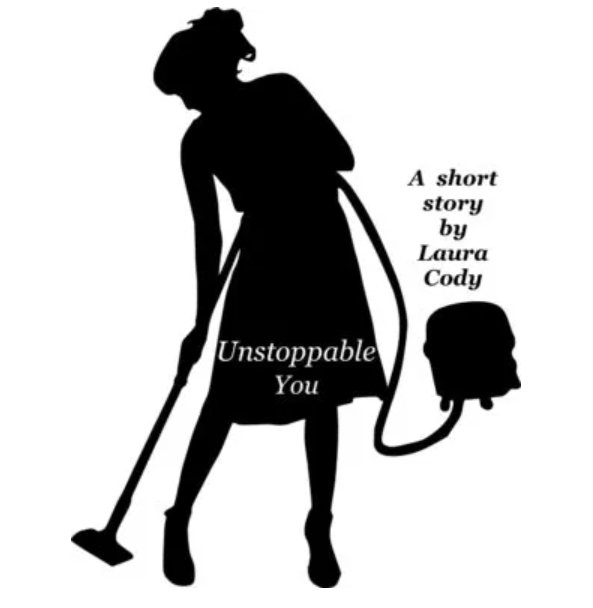Written by Graham Elder
Foreword
This story was submitted as part of the inaugural New England Journal of Medicine (NEJM) fiction writing contest last year. The Contest rules were very specific. No more than 1500 words, and contestants must either: Write about the doctor behind the curtain or invent the back story of the patient you didn’t meet until it was too late. I decided to try and accomplish both. Alas, I didn’t win, but it was a fun effort.
“Curtains”
All doctors have at least one case they wish they could take back – a do-over. A case that sits deep in the pit of their stomachs and rots with time …
“What’ve you got for me this morning, Julie?”
“A banker, a farmer, and a local GP.”
“Is there a joke coming? I asked.
“No joke.” She smiled under her mask.
“Hmmm. A GP? Anyone I know?”
“Well, Mark, since you’re not from these parts, I doubt it,” Julie answered.
We were both standing at the main ER desk, fully protected from a world under siege by gowns, masks, and face shields, waiting patiently for the vaccine to be discovered. It was 7 AM, and I’d just come on for my third locum shift in as many days. There was just the two of us in this small emergency department.
“So, door number one, two, or three?” She asked.
“Well, they’re more like curtains, aren’t they?”
Julie rolled her eyes. “Behind curtain number one is a 58-year-old banker who awoke this morning with chest pain and no previous history. How about if we start there?”
“What about the GP behind curtain three?”
“His complaint is knee pain. I’m sure he would understand.”
***
It turned out that the banker was trying to recreate a previous Mexican restaurant experience from pre-Covid times for his teenage kids the night before and had mixed up his jalapeno measurements. All tests appeared normal. He seemed to be suffering from acute indigestion and responded nicely to a pink lady.
“Tell me about the farmer.”
“He’s 42, lives about an hour from here, and is complaining of new onset shortness of breath and dry cough. No significant past medical history, however, he’s not one to go to doctors.”
I knew there were large communities of people in this area, many of them farmers, that were non-believers and didn’t wear masks or respect social distancing. This really bothered me, the idea that some people thought it was all a hoax, denying its existence unto their deathbeds.
I sighed. “Okay, he’s next.”
Before we pushed the curtain aside, Julie whispered, “Be prepared to receive payment in chickens.”
I grinned at the thought of a 300-mile drive home with a flock of chickens in my backseat.
***
The farmer worried me. His oxygen saturation was 90% on room air, and his respiratory rate was 32. Also, he was requiring his accessory muscles to breathe. Although he had no fever, whether or not he believed in it, he had Covid until proven otherwise. We sent off a swab and placed him on oxygen. For now, it was a wait and see game.
“Alright, Julie, let’s go see –”
The EMS radio crackled, “Enroute with a 23-year-old male, victim of a stab wound to the abdomen. ETA two minutes.”
Julie reached for the handpiece. “Roger, two minutes.”
We ran to the trauma bay, steadied our nerves and readied our equipment. As a last-minute thought, we both donned booties to protect our footwear. Stab wounds could get messy.
***
An hour later, once the patient was stabilized and packed off to the OR surrounded by an excited ensemble of medical expertise, Julie and I ripped off our blood drenched gowns and slam dunked them into the garbage. The rush of adrenaline still electrified our every move, but the effects were starting to dissipate, and that lethargic, heavy feeling took over, the one you inevitably get after a ten-mile run. We dragged our feet back to the main desk and plopped down into our chairs, sweat soaked scrubs sticking to the vinyl backs.
“What do you think?” I asked. “All those tats and piercings. Drugs? Petty theft gone wrong? Gang related?”
Julie shrugged her shoulders. “No track marks. Tats weren’t gang-like. I’ve never seen him here before, so he’s not a repeat offender. Not sure …”
She looked to her computer screen and said, “Hmm, the farmer checked himself out.”
“Covid test back?” I asked, peering into his empty room, as if a mist of Covid viruses might be hovering in the air.
“It is, and it’s positive.”
“Damn. His whole community is probably infected at this point, and now he’s out networking it to everyone he meets. Can we call someone?”
Julie’s eyebrows peaked. “We’re mandated to call Public Health. We don’t have his consent to contact anyone else.”
“That could take days or, at the very least, hours. In the meantime, we just wait?
“Public health will also automatically get a copy of his positive Covid test. They’re usually pretty quick.”
It didn’t seem right that a highly contagious patient could go out into the world and knowingly or unknowingly infect everyone – maybe even killing a few unluckies – and all we could do was mark time. I tucked the farmer behind a big steel door in my mind and moved on.
I knocked politely on the wall and pushed the curtain to room #3 aside.
“Hello, I’m Dr. Spencer. So sorry to keep you waiting.”
“Pleasure,” a gentle voice replied. “I’m Oscar Diggs.”
“I hear your knee is bothering you.”
Dr. Diggs was 74 and ran a family practice on the edge of town. He was, apparently, a legend in these parts and a little eccentric. His eyes were sharp, piercing even, and a whitish beard overflowed from the edges of his mask and blended perfectly with a tousled head of lockdown hair.
“Yes. I have an arthritic knee that flares up intermittently and only seems to respond to steroids. I was wondering if you would be so kind.”
“Let me examine you first.”
As I proceeded, he asked, “How did it go with the stab victim?”
I looked up from his knee. “It was touch and go for a while, but we were able to stabilize him.”
“I brought Donny into this world 23 years ago. He’s a good kid. I know his family well. It wasn’t drugs, petty theft or gang war. He was just in the wrong place at the wrong time.”
I turned to the curtain. “So, from this room you can hear everything at the main desk?”
“Every word. And when you’re lying here waiting, there’s nothing to do but listen.”
“My apologies,” I said, although I wasn’t sure exactly what I was apologizing for.
He remarked, “We have a tendency in our line of business to make snap judgements that aren’t always in the patient’s best interest. I need to remind myself of that every day.”
“Point taken.”
I pulled up his x-rays on a nearby computer screen. “Hmm, pretty bad OA.” I called for an injection tray.
“So, the farmer left AMA,” he stated.
“You heard that also?”
“Isaiah’s a smart man. He’s seen me a few times over the years. He knows all about the pandemic and takes all the precautions.”
“Maybe not so smart. He left AMA.”
“Yes, he tested positive for Covid, didn’t he?”
So much for patient confidentiality.
He continued, “A family member came in while you were dealing with Donny and his stab wound. There was an emergency on the farm and travelling by horse and buggy is not terribly speedy.”
“Oh,” I said, “I had no idea.”
“No matter. As I said, Isaiah’s a smart man. He’ll continue to take precautions. And someone will pass by his farm today to let him know what’s going on.” He gave me a wink that positively twinkled.
“Well … thanks. I really thought he was one of those non-believers.”
“An assumption, perhaps?”
“I suppose.”
I injected the steroid without issue, all the while pondering his point about assumptions. I was about to leave when he asked, “And Glen?”
“Glen?”
“The banker.”
“Oh, we discharged him.”
“Yes. Indigestion from jalapenos. He’s not my patient, but I’ve known Glen a long time, and he’s never had problems with any foods. He does, however, have a probable undiagnosed cardiac condition that he doesn’t want anyone to know about because it might affect his travel insurance.”
I shook my head. “Crap. I’ll have to call him ba –”
Julie yelled, “Dr. Spencer. Come quick. EMS is here with the banker and he doesn’t look good.”
I looked pointedly at the old doc. “Damn,” I said. “Okay, I’m –”
“Code Blue,” was announced overhead. I blitzed to the trauma bay.
***
All of our efforts failed to revive Glen, the banker. The old doc was right: it wasn’t indigestion, it was cardiac. Glen’s wife revealed that he had had several other similar episodes. When I reviewed his original ECG again, this time I noticed very subtle signs of previous heart problems. As well, although his earlier cardiac enzymes were within normal limits, they were on the high side. Had I kept him in the ER and ordered another set they probably would have been elevated, and I wouldn’t have discharged him, and he might have lived. Every molecule of my being grieved for him … and my failure.


